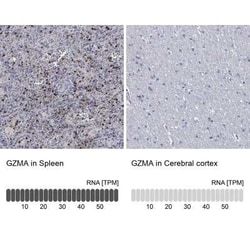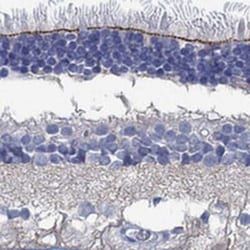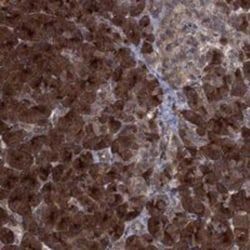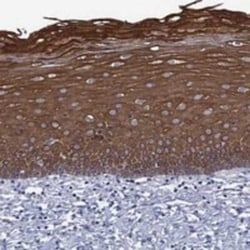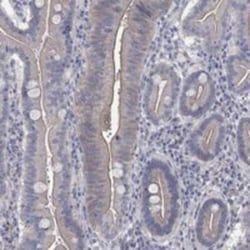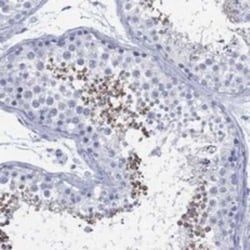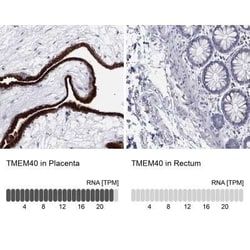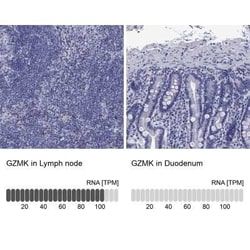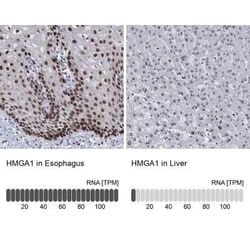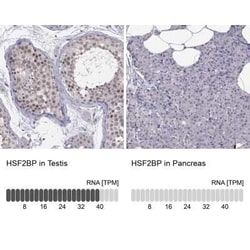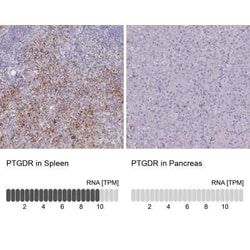Granzyme K Rabbit anti-Human, Polyclonal, Novus Biologicals™
Rabbit Polyclonal Antibody
Manufacturer: Fischer Scientific
The price for this product is unavailable. Please request a quote
Antigen
Granzyme K
Applications
Immunohistochemistry, Immunohistochemistry (Paraffin)
Conjugate
Unconjugated
Host Species
Rabbit
Research Discipline
Apoptosis, Immunology
Formulation
PBS, pH 7.2, 40% glycerol
Gene ID (Entrez)
3003
Isotype
IgG
Purification Method
Affinity purified
Dilution
Immunohistochemistry 1:500 - 1:1000, Immunohistochemistry-Paraffin 1:500 - 1:1000
Classification
Polyclonal
Form
Purified
Regulatory Status
RUO
Target Species
Human
Gene Alias
EC 3.4.21, EC 3.4.21.-, EC 3.4.21.4, Fragmentin-3, granzyme 3, granzyme K, granzyme K (granzyme 3; tryptase II), granzyme K (serine protease, granzyme 3; tryptase II), Granzyme-3, NK-Tryp-2, NK-tryptase-2, PRSS, TRYP2granzyme-3, tryptase II
Immunogen
This antibody was developed against Recombinant Protein corresponding to amino acids: LSKNEASKQTLEIKKFIPFSRVTSDPQSNDIMLVKLQTAAKLNKHVKMLHIRSKTSLRSGTK
Primary or Secondary
Primary
Content And Storage
Store at 4°C short term. Aliquot and store at -20°C long term. Avoid freeze-thaw cycles.
Description
- Granzyme K Polyclonal antibody specifically detects Granzyme K in Human samples
- It is validated for Immunohistochemistry, Immunohistochemistry (Paraffin)
